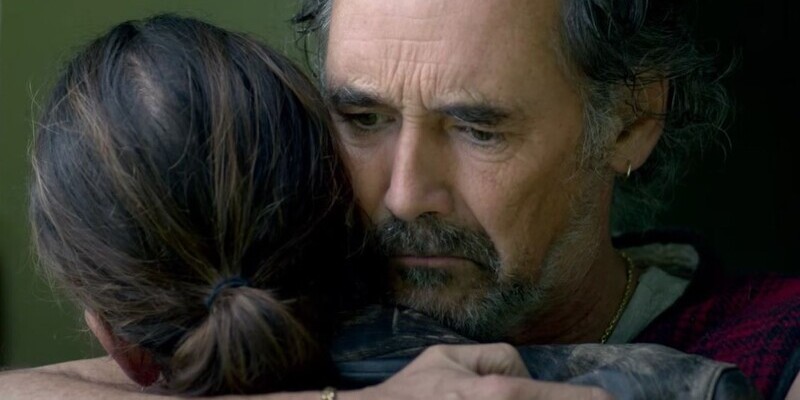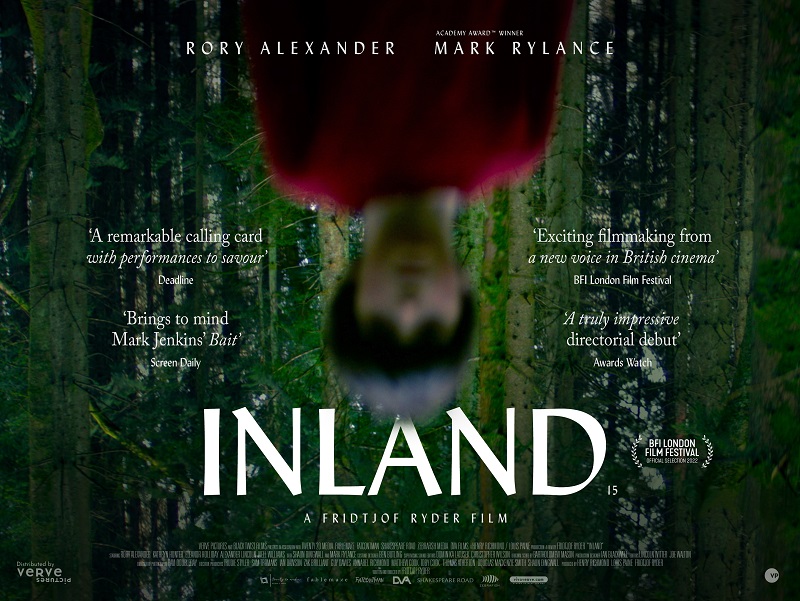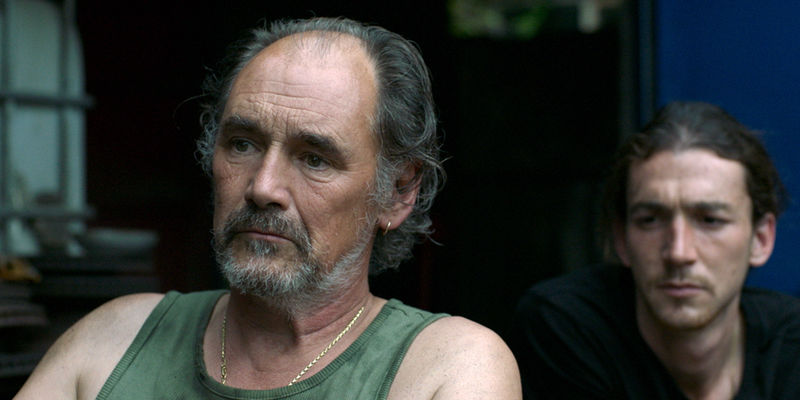
Review by
Eric Hillis
Directed by: Fridtjof Ryder
Starring: Rory Alexander, Mark Rylance, Kathryn Hunter, Shaun
Dingwall, Nell Williams

The influence of Britain's 1970s Folk movement is writ large across
Inland, a feature debut from director Fridtjof Ryder that recalls the
more experimental entries of BBC's classic Play for Today series. With a
young man searching for his identity amid symbols of England's pagan
past, it has much in common with Alan Clarke's 1974 TV movie
Penda's Fen.

An unnamed young man (played by Rory Alexander, so I'll refer to
him as Rory from hereon) is released from a psychiatric institute where
he spent time for an assault that left his brother hospitalised. We
learn the fight was an offshoot of their free-spirited but troubled
Romany mother disappearing, not for the first time by all accounts. Rory
tapes a photograph of his mum onto a mirror on his car's dashboard so he
can "see her then and me now."
Rory returns home to Dunleavy (Mark Rylance), a father figure
whose exact relationship to the young man is unclear. Dunleavy gives
Rory some shifts at his garage and hopes it will keep Rory out of
trouble, but a visit to a strip club/brothel, where he encounters a sex
worker who resembles his mother, leads him down a troubled path.

The surrealist elements arrive early in Inland with a
flashback to Rory's childhood in which his mother is envisioned as a
statue in a forest. Later, the workers at the strip club are similarly
represented as such figurines in a sequence that owes much to the Black
Lodge of Twin Peaks. Throughout, we get a sense that Rory is being drawn to the forest,
perhaps to follow in his mother's footsteps. In his finest piece of
acting in quite some time, Rylance delivers an unsettling monologue
about how Rory's mother was drawn to nature, but he found the forest
dark and disturbing. "Too old," he shudders with recollection.
After spending most of the past decade in Hollywood, Rylance gets the
sort of nuanced role that better suits his talents, free from the tics
and gurning he's become known for recently. The actor really sells
Dunleavy's affection for Rory, and there's a powerful moment where the
latter leaves a scene but the camera remains on Rylance's face, filled
with worry and apprehension. These are two very British men who can't
come out with their feelings, but Ryder knows how to exploit both his
performers' faces to clue us into what they're going through at any
given moment.

Ultimately, Inland is something of an enigma. I'm not
quite sure I took everything in on this watch, and I suspect it may
reveal an extra layer or two with further viewings. It's a simple tale
at heart but the addition of surrealist elements and the haunting vibes
of England's buried pagan past make it stand out from other gritty
British dramas. With Inland, Ryder and Alexander have marked themselves as ones to watch.

